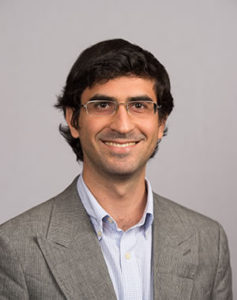
This post is written by Diego Garcia Montufar. Diego is pursuing a dual master’s degree program in public policy and applied economics
________________________________________________________________________________________
One of the highlights of my experience at the Ford School was my work through the Dow Sustainability Fellowship. Dow fellows engage in an interdisciplinary team project with students from other schools and departments from across UM and attend seminars by academics, practitioners, and other sustainability experts. The fellowship highlights the importance of collaboration across disciplines to devise actionable sustainability solutions at local and global levels.
My team, composed of students from the schools of Public Policy and Environment and Sustainability, assessed barriers to ridesharing and carsharing in HOPE Village, a neighborhood in the city of Detroit. Shared-use mobility services such as ridesharing and carsharing are changing the transportation landscape across the world and providing people with access to opportunities such as jobs and education. These mobility services, however, have mostly been targeted to high-end consumers and have the potential to exclude low-resourced, low-density communities. By focusing on a neighborhood in Detroit, my team hoped to understand whether shared-use mobility services could contribute to satisfy the transportation needs of communities where public transportation is wanting, and to identify the challenges and barriers that prevent people from using them.
As a policy student interested in qualitative research methods, I was responsible for designing the questionnaires that we used to conduct focus groups in HOPE Village. A key part of my job was amplifying the voices and opinions of residents, and using their insights to inform the recommendations to our local partner. My teammates conducted research in areas like transportation policy, focusing on successful ridesharing and carsharing programs across the US, while others incorporated their business and environmental expertise to our work. In addition, we received enormous support from our local partner, Focus: HOPE and from Ford School faculty like Elisabeth Gerber, a transportation policy expert.
The focus groups we conducted revealed that the most significant barriers to shared-use mobility services in HOPE Village were access to credit, security concerns, and a lack of outreach and inclusion from shared-use mobility companies. Many of these barriers could be addressed by adequate policy responses, but others depend on the strategies employed by shared-used mobility companies to penetrate different neighborhoods and areas. Our findings confirmed that an interdisciplinary approach like the one espoused by the Dow Sustainability Fellowship could in fact contribute to major changes in the transportation landscape and make shared-use mobility services more accessible and equitable. Many cities across the US have acknowledged this; the city of Detroit has launched an Office of Mobility Innovation, and the city of San Francisco is currently conducting a series of studies on Emerging Mobility Services and Technologies to inform future policy options and pilot programs, taking community collaboration and equitable access as some of its guiding principles.
My experience as a Dow Fellow serves as a strong reminder of why I chose to study public policy in the first place: policy problems are multifaceted, and their solutions must draw from multiple disciplines, including economics, sociology, health sciences, and others. Programs like the Dow Sustainability Fellowship are an opportunity for Ford and other UM students to put their knowledge in practice and contribute to solutions that can improve the quality of life for present and future generations while safeguarding our planet.

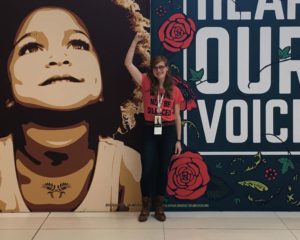
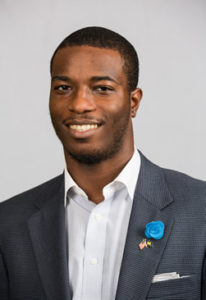
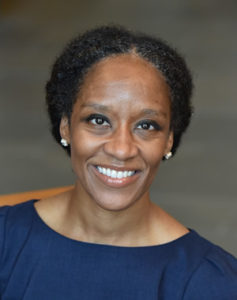 As I begin my new role as the inaugural Diversity, Inclusion and Equity Officer/Lecturer III, I am thrilled to be here and to work with you in this new capacity.
As I begin my new role as the inaugural Diversity, Inclusion and Equity Officer/Lecturer III, I am thrilled to be here and to work with you in this new capacity. 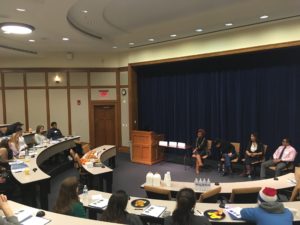 The day started with a panel asking “What Is Public Policy?”, featuring Susan Guindi, the Director of Student and Academic Services; Talha Mirza, a junior and Ford B.A. student; and Charisse Wilkins, a first-year MPP and MBA student. Perhaps the most exciting thing about this session was not the diversity in the panelists’ experiences, interests, and backgrounds, but that Talha himself had been a PPC participant when he had attended WIHI. It was truly full circle to see Talha speaking to students from a high school he had graduated from several years ago.
The day started with a panel asking “What Is Public Policy?”, featuring Susan Guindi, the Director of Student and Academic Services; Talha Mirza, a junior and Ford B.A. student; and Charisse Wilkins, a first-year MPP and MBA student. Perhaps the most exciting thing about this session was not the diversity in the panelists’ experiences, interests, and backgrounds, but that Talha himself had been a PPC participant when he had attended WIHI. It was truly full circle to see Talha speaking to students from a high school he had graduated from several years ago.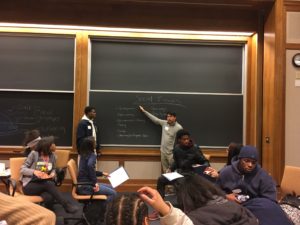 identified topics ranging from lack of mentorship to police brutality to inequality between school districts. One discussed the systemic discrimination in the incarceration system, and highlighted sentencing differences between crack and powder cocaine as a factor contributing to oppression. Listening to them talk about such heavy topics in incredibly articulate and critical ways, it was hard to believe these students were only in high school. They demonstrated an impressive emotional maturity, reminding me that people of color are great policy leaders because our lived experiences bring us closest to the problems we are trying to address.
identified topics ranging from lack of mentorship to police brutality to inequality between school districts. One discussed the systemic discrimination in the incarceration system, and highlighted sentencing differences between crack and powder cocaine as a factor contributing to oppression. Listening to them talk about such heavy topics in incredibly articulate and critical ways, it was hard to believe these students were only in high school. They demonstrated an impressive emotional maturity, reminding me that people of color are great policy leaders because our lived experiences bring us closest to the problems we are trying to address.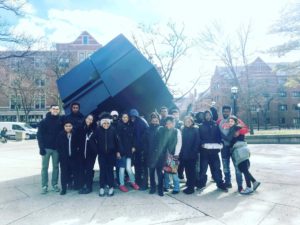
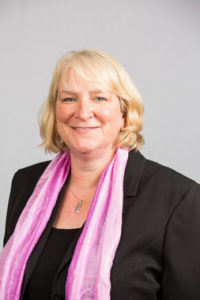 Services & Alumni Relations at the Ford School, I’ve worked with students through great economic times, downturns in the economy, Presidential and party transitions, and any number of shifts in policy priorities, trends in public-private partnerships, emerging fields and markets, and more.
Services & Alumni Relations at the Ford School, I’ve worked with students through great economic times, downturns in the economy, Presidential and party transitions, and any number of shifts in policy priorities, trends in public-private partnerships, emerging fields and markets, and more.